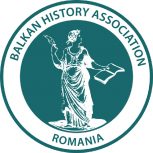The Balkan History Association is preparing a volume in English on Islamic culture, traditions, and pre-Islamic beliefs in Kazakhstan, Kyrgyz Republic, Tajikistan, Turkmenistan, and Uzbekistan. The volume will highlight the importance of religious life among the populations of Central Asia. Over thousands of years, the region has been a bridge between different religions and cultures. Some cultural and social changes took place after the adoption of Islam, while some pre-Islamic sacred places have been transformed into Islamic ones, and the cult of saints absorbed some elements of both local and Arab mythology. The volume will emphasize the importance of certain “sacred places”, which became major “places of worship”, and their role in the socio-spiritual life of Central Asian society. It will focus on local forms of interpretation of Islam and their historical and cultural background.
Authors are invited to submit book chapters dealing with the following topics: history of Islam and how it spread in Central Asia; pre-Islamic reminiscences; Tengrism; Shamanism; “sacred places” and “places of worship”; rituals practiced at sacred places; sacralization of local customs; Islamic feasts; ‘folk’ Islam; Islamic practices; holy shrines, places of pilgrimage and their curative significance; the influence of Sufism; Sunni versus Shia; communal identity; Soviet anti-religious campaigns; struggle against secularization and interpretations of Islam (e.g. Salafism).
Submission procedure
The volume will be published by Peter Lang (in the series “South-East European History”). Original manuscripts should be prepared following the editorial guide of Peter Lang available on its website, especially “Style Guidelines – British English” and “Submission Guidelines“. You can see the chapters of this open access volume to understand how manuscripts should be edited. Manuscripts must not have been published, submitted for publication or available on the internet elsewhere. Interdisciplinary work is particularly welcome. Please submit your proposal, including the title of your manuscript, an abstract (up to 300 words), and an author’s biography (up to 100 words) to all editors. The abstract should include the research question and purpose, the approach and main ideas, and results. No figures, tables, footnotes, or endnotes should be included in the abstract. Articles should not exceed 8,000 words in length including footnotes and references (reference list or bibliography). The volume may contain up to 20 black-and-white images.
Deadlines
May 1, 2023: Submission of proposals to editors
May 15, 2023: Notification of accepted proposals
October 16, 2023: Receipt of final papers for peer review
October 31, 2023: Revised chapters re-submitted to editors
Editors
Ismailov Gulom (Institute of Uzbek Language, Literature and Folklore, Academy of Sciences of Uzbekistan), gulom1208@gmail.com
Elira Turdubaeva (Ala-Too International University, Kyrgyzstan), elira.turdubaeva@alatoo.edu.kg
Francesca Fiaschetti (University of Vienna), francesca.fiaschetti@univie.ac.at
Sultonbek Aksakolov (School of Arts and Sciences, University of Central Asia, Tajikistan), sultonbek.aksakolov@ucentralasia.org
Antonio Alonso Marcos (San Pablo CEU University, Madrid), aalonso@ceu.es
Venera Mustafayeva (Topkapı University, Istanbul), venusmno@gmail.com
Please circulate this call for papers among your colleagues and other potentially interested scholars.

